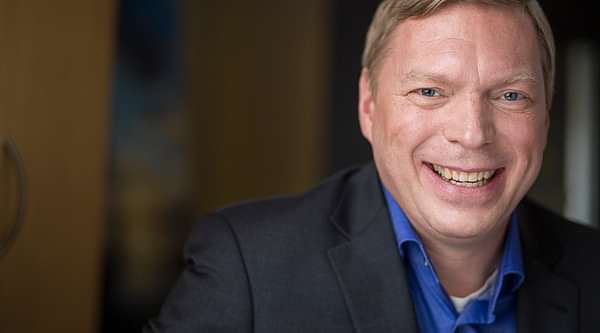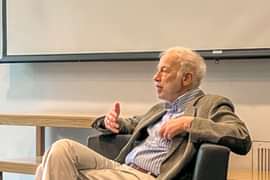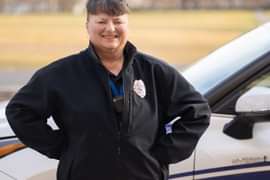December 14, 2022
The happiness guru
Scott Crabtree ’84 teaches others to choose happinessby Christine Yu ’94
We all want to be happy. After all, the “pursuit of happiness” is listed in the Declaration of Independence along with life and liberty as an inalienable right. But according to Scott Crabtree ’84, we’re chasing after the wrong things.
What many of us think makes us happy—money, fame, a promotion, a dream vacation—aren’t actually the elements of long-lasting happiness, claims Crabtree. While obtaining any one of those things might feel good, the effects are fleeting. “Happiness has almost nothing to do with our circumstances, nothing to do with the stuff in our lives,” Crabtree says. Nor is happiness necessarily related to a sunny disposition or an ephemeral feeling. Instead, scientists call it subjective well-being.
“We’re talking about how people feel, but it’s also a deeper, longer-lasting sense of meaning and satisfaction in life."
For the past 11 years, Crabtree, who lives in Sisters, Oregon, has helped people understand that happiness doesn’t have to be an elusive state of being that one hopes to experience more often than not. You can pursue it intentionally. “To be happier, science can absolutely tell us what works for most people most of the time,” he says.
Crabtree is the founder and chief happiness officer of Happy Brain Science. He works with clients such as DreamWorks, Nike, and NBC to build a more engaged workplace so that employees can thrive. Through workshops, lectures, executive coaching, and consulting, he teaches people how to apply science-based principles of happiness so they can make better decisions and be better leaders. He even developed a deck of cards to gamify the experience.
There are good reasons why employers want to invest in employee happiness, especially as employee engagement has slumped to 32 percent, according to a recent Gallup survey.
“Happier brains are more engaged, energetic, cooperative, creative, and resilient. Happy brains notice more. They’re more intuitive problem solvers,” says Crabtree. “Happier people are also healthier and live longer.” Studies have found that when someone is happier, there’s a 10 to 25 percent boost in productivity, and they also perform better.
It makes sense. Crabtree says that unhappy brains activate the body’s flight, fight, or freeze mode.
 Scott Crabtree '84 has always been interested in understanding how the brain works. He earned a degree in cognitive science from Vassar College and then worked at companies designing video games and other software before delving into the field of happiness.
Scott Crabtree '84 has always been interested in understanding how the brain works. He earned a degree in cognitive science from Vassar College and then worked at companies designing video games and other software before delving into the field of happiness.
However, the goal isn’t to be happy all the time. That’s unrealistic. Life is hard, and negative emotions are natural, healthy, and even helpful.
He was working at Intel when he first stumbled across positive psychology and research on happiness and dove in headfirst. Soon after he started giving talks on happiness research.
It was during one such talk at Intel, where he still worked at the time, when he realized: “I think this is my calling: to share the science of happiness with people who need it.”
Although Crabtree was terrified to walk away from a stable, well-paying job, he is happy he had the courage to start his own company and has found his new work both rewarding and satisfying.
Crabtree credits Andover for helping him develop the tools necessary to be successful in his line of work. He learned from teachers—including the late Tom Lyons—how to analyze information, be a critical thinker, and come up with a point of view.
“You have to be able to weed out the good science from the bad,” he says.
Other campus adults, like cycling coach Derek Williams, also helped Crabtree. “He believed in me and had confidence in me when I didn’t. That was transformational.”
Crabtree’s experience has come full circle. He has taken these lessons learned and applied them not only to his business, but also to give back to the Andover community, returning to campus and passing on his knowledge to a new generation of Andover students.
“The science of happiness keeps reminding me of the importance of focusing on people—serving and helping people,” he says.





